New York 1900 in color
Categories: History | North America
By Pictolic https://pictolic.com/article/new-york-1900-in-color.htmlA selection of photos of New York made using photochrome technology. We have given descriptions and links to how these places look now. Photochrome is not a color photograph, but a special printing technology in which several lithographic printing plates are made from a black-and-white negative. As a result, the image turns out to be colored, but not very natural and a bit like a watercolor drawing.
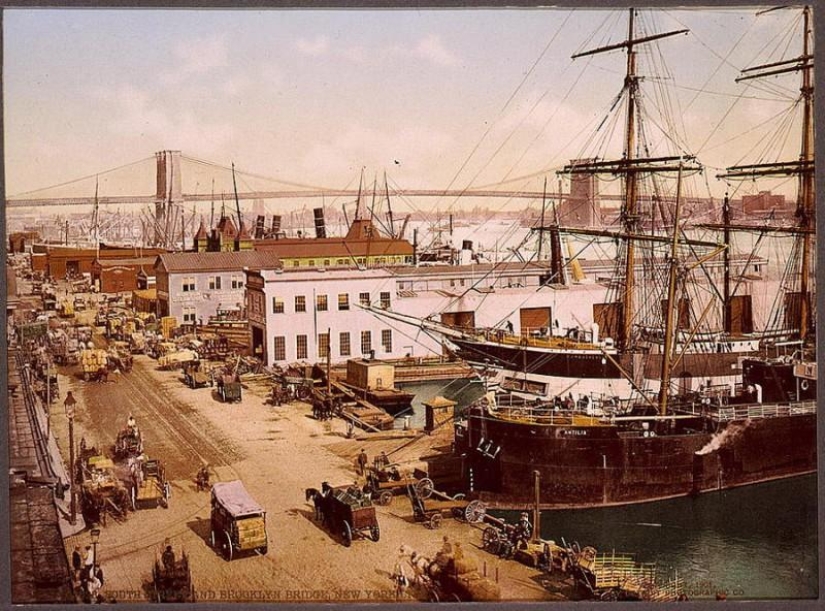
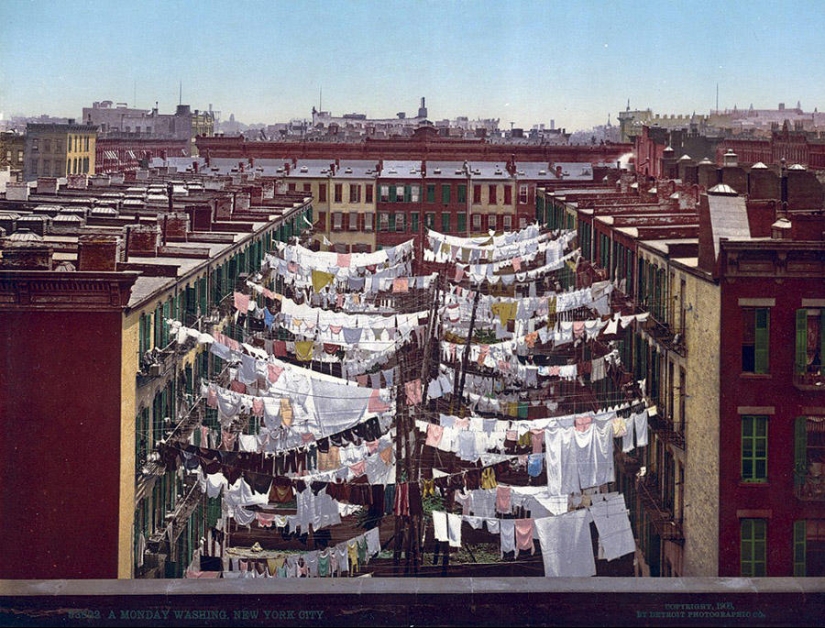
Washing at the beginning of the week. Laundry hung on ropes in the backyard of an apartment building. This is the place today.
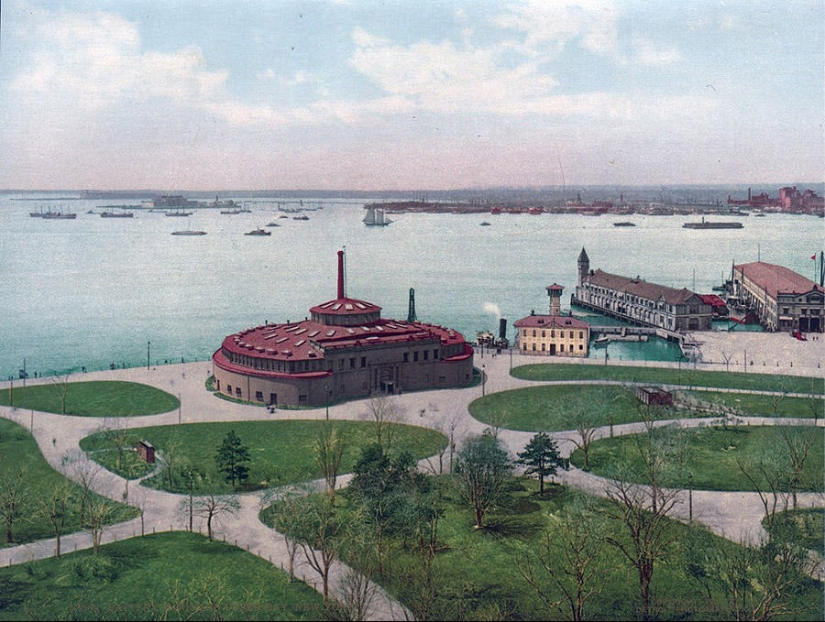
Battery Park. Round building - Fort Clinton (1808) During its history, it managed to visit a fortress, an immigration station, a city aquarium (at the time of shooting), a beer hall, a theater, an exhibition hall and a museum. On the right is an elongated "Pier A" (1886), preserved to this day. This is the place today.
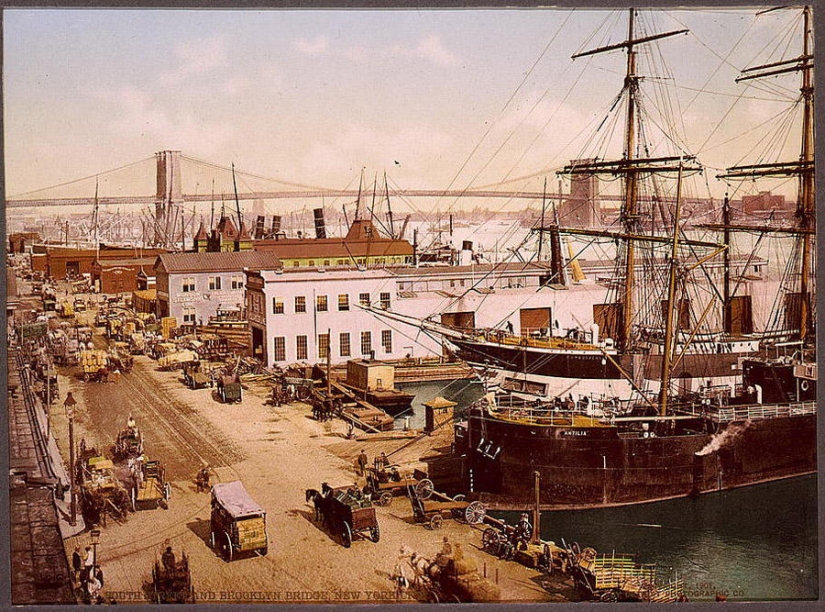
Piers of the South Street port. In the background is the Brooklyn Bridge. This is the place today.
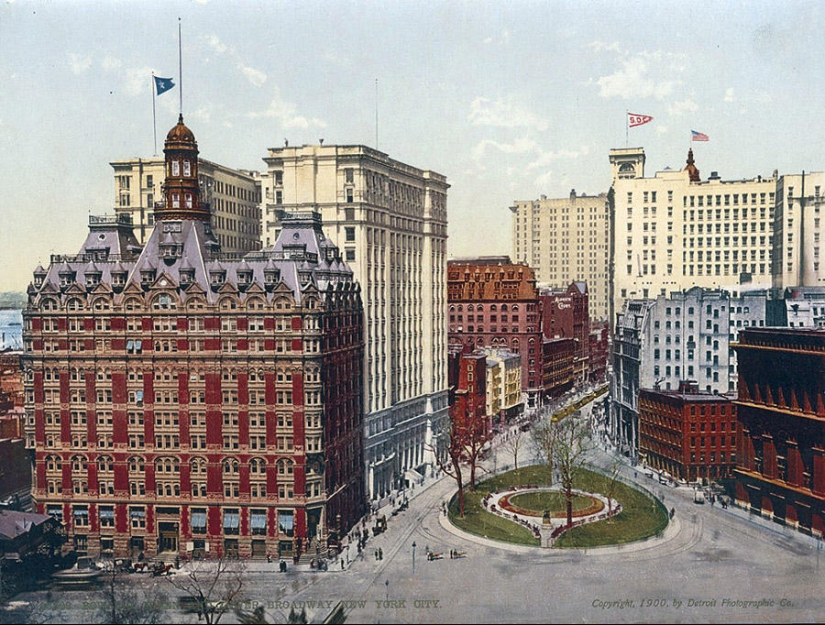
The red building in the foreground is the Washington Building (1882). In 1921, it was reconstructed, completely replacing the facade and renamed the United States Lines-Panama Pacific Lines Building. Now the building is called Broadway 1. Behind it stands the Bowling Green Building (1896), which housed the office of the White Star Line Steamship Company - the owner of the Titanic. On the right is Bowling Green Square (there is a bull behind it) and the very beginning of Broadway. This is the place today.
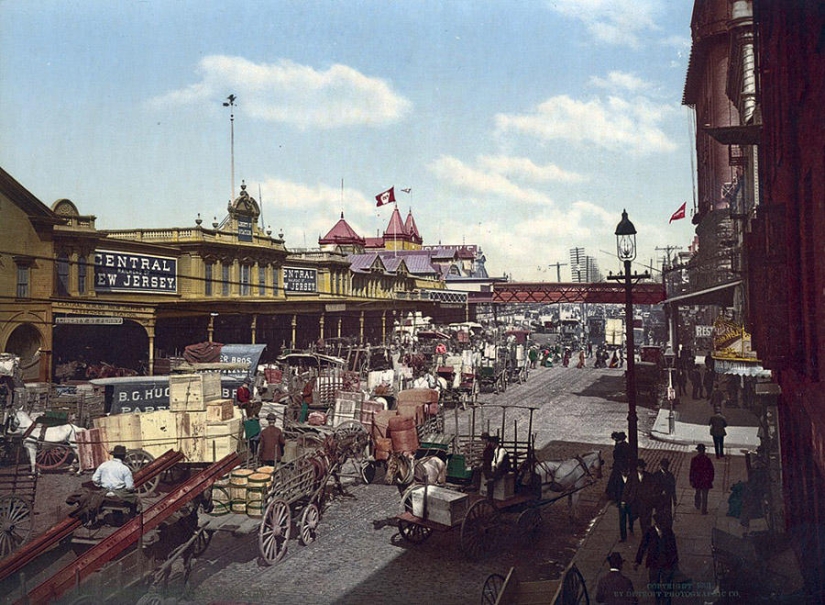
The New Jersey Central Railroad Ferry Terminal at the corner of West and Liberty Streets. This is the place today.
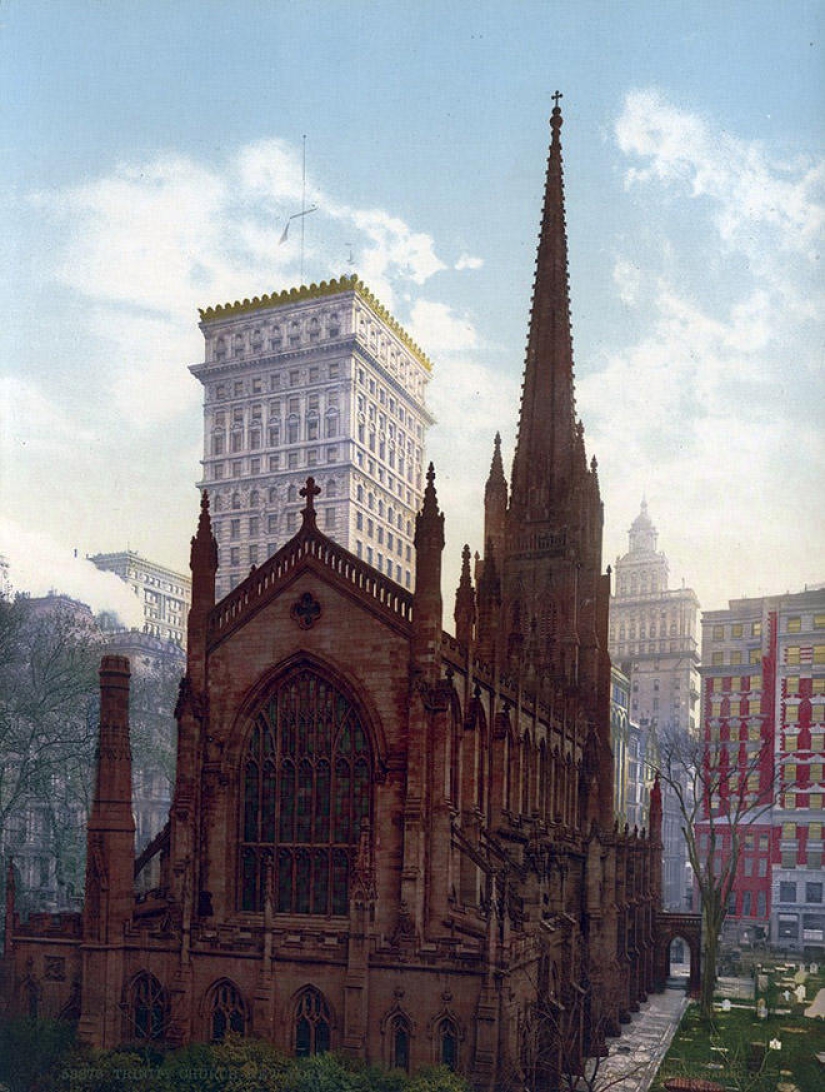
Trinity Church (1846). It was the tallest building in New York for 44 years. This is the place today.
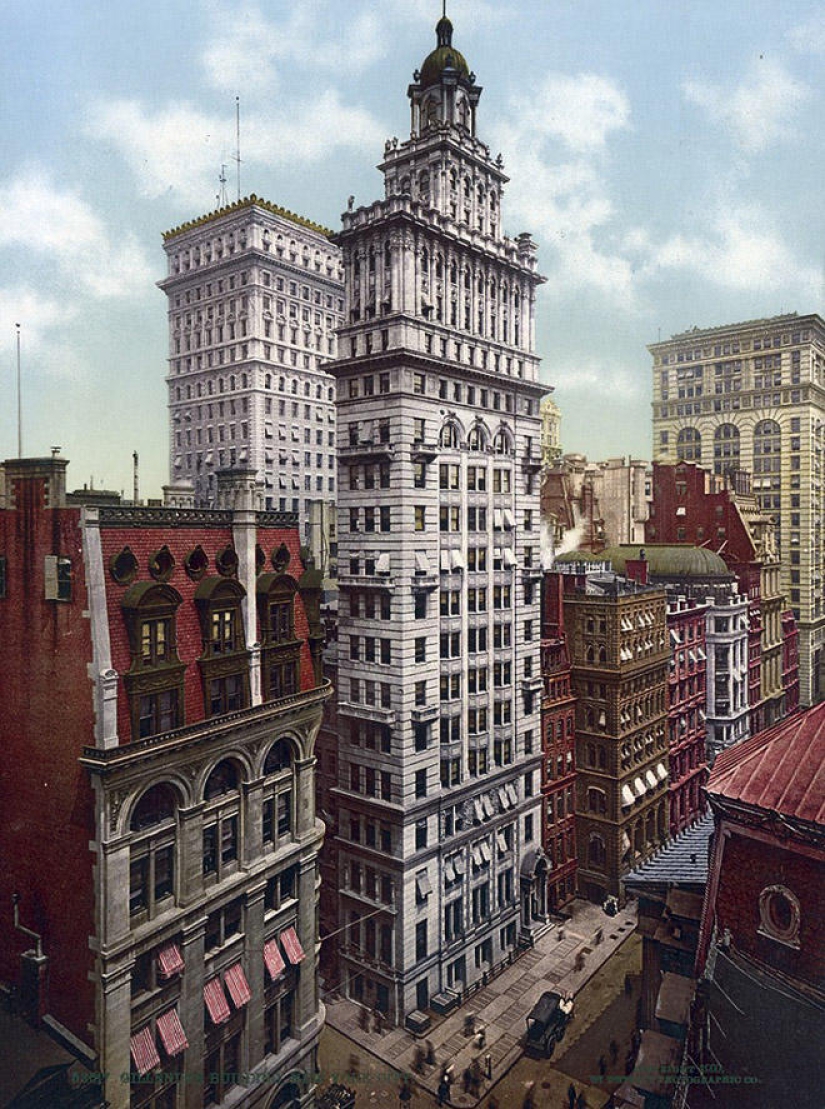
Gillender Building (1897–1910). The building was erected on the corner of Wall Street and Nassau Street. Now in its place stands the Bankers Trust Building (1912).
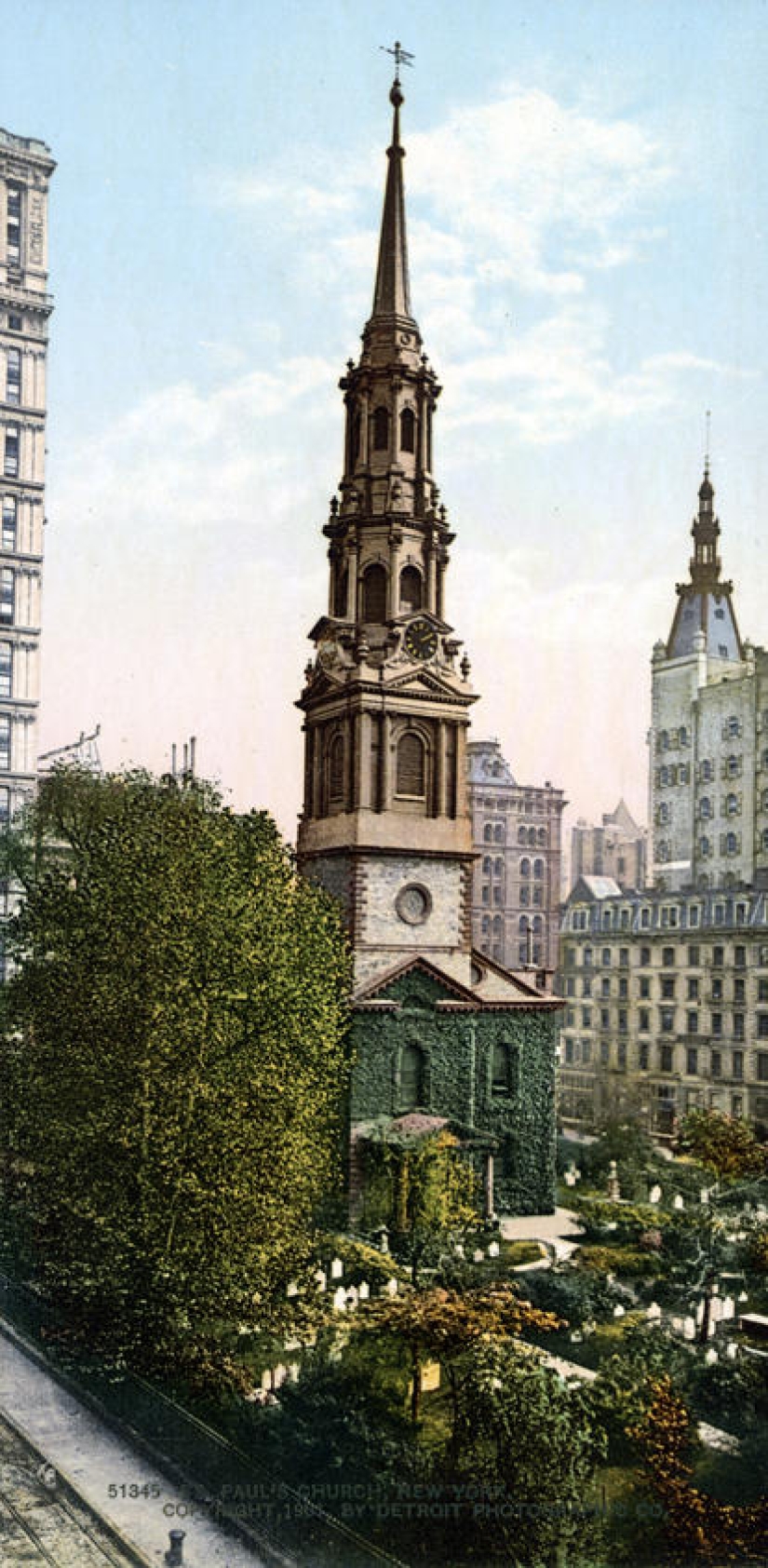
The oldest surviving church building in Manhattan is St. Paul's Chapel (1764). Belongs to the Episcopal Church. This place is now.
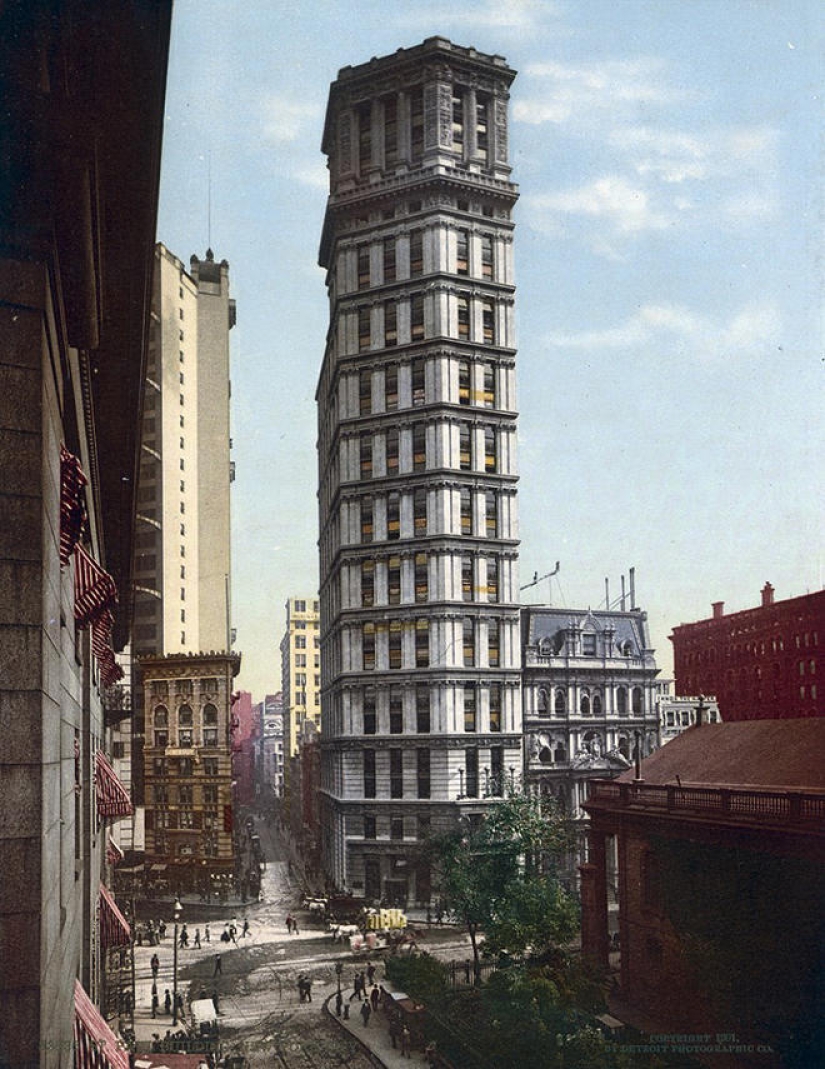
St. Paul Building (1898–1958). Now the Western Electric Building (1961) stands in its place. St. Paul's Chapel is visible on the right. This is the place today.
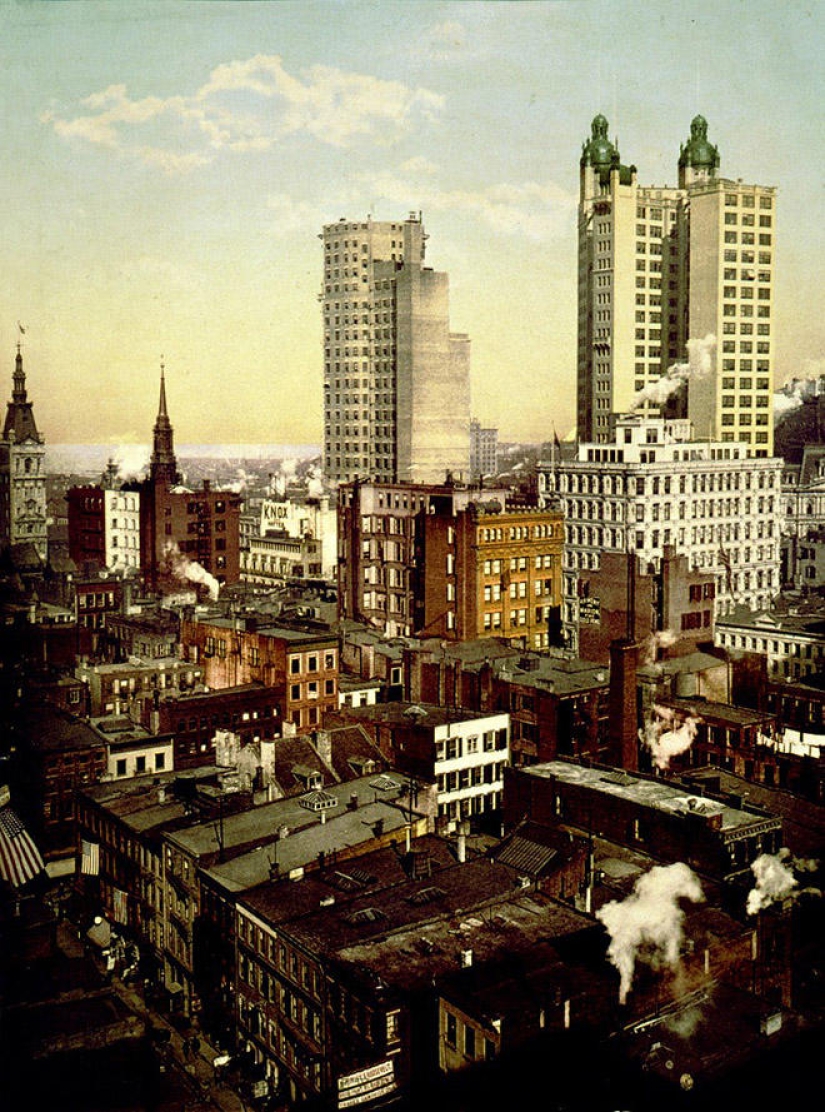
On the left is the St. Paul Building. On the right is the Park Row Building (1899). The tallest building in the world from 1899 to 1901. This building is today.
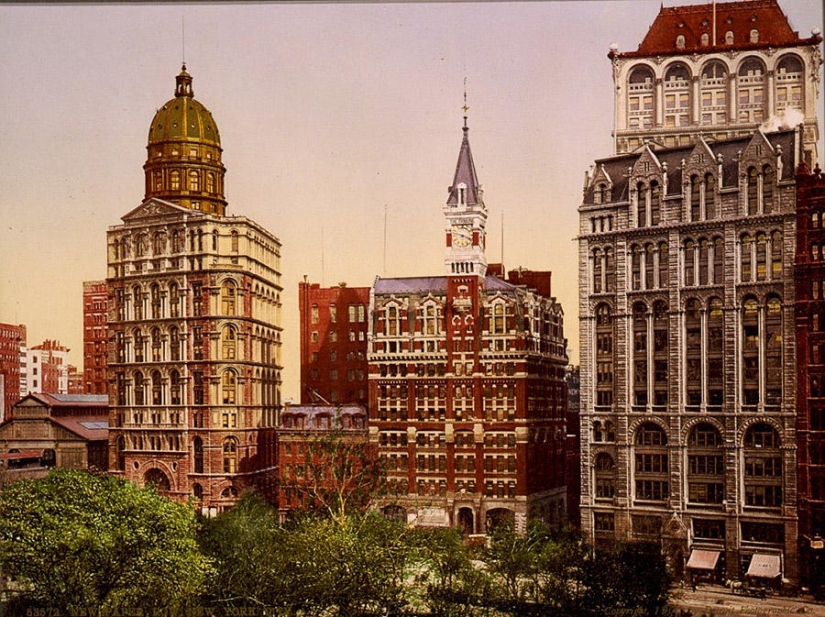
Newspaper Row (now Park Row). Here were the offices of the largest New York newspapers. From left to right: World Building (1890-1955– - the office of the newspaper The New York World, owned by Joseph Pulitzer. The first building built in New York above Trinity Church and the tallest building in the world from 1890 to 1894. Demolished during the reconstruction of the entrance to the Brooklyn Bridge. The clock building - Tribune Building (1875-1966) - the office of the New York Tribune newspaper. Gray on the right is the New York Times Building (1889). This is the place today.
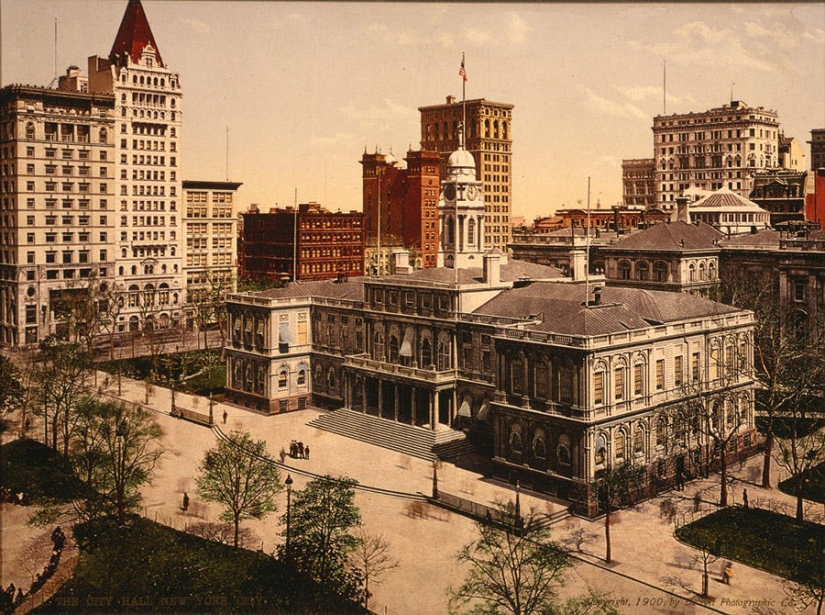
City Hall building (1811). On the left, Home Life Building (1894) and Postal Telegraph Building (1894) (with a red pyramid). The tall building behind the tower of City Hall is the Broadway-Chambers Building (1900). This is the place today.
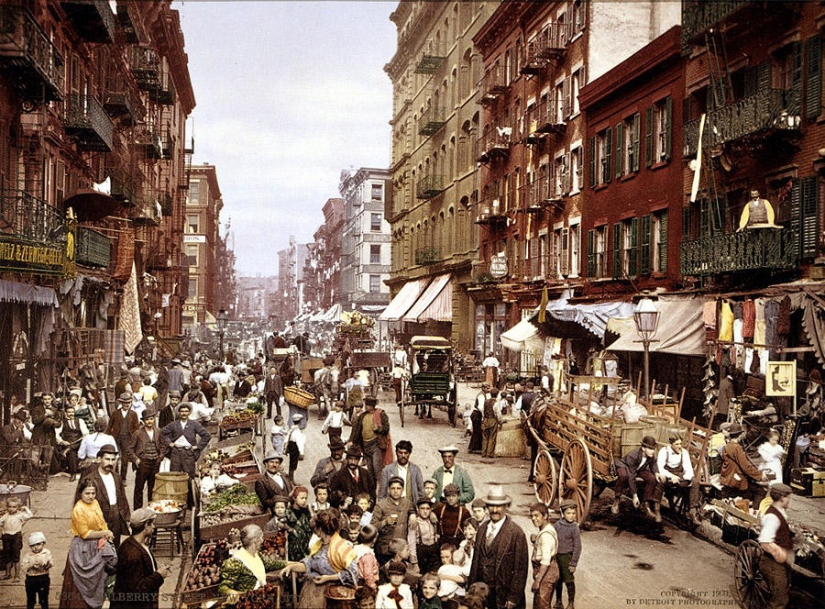
Mulberry Street. Same neighborhood today.
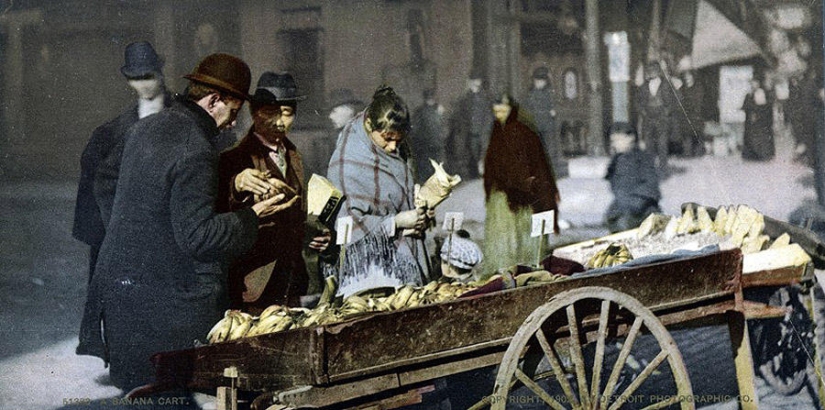
A cart with bananas.
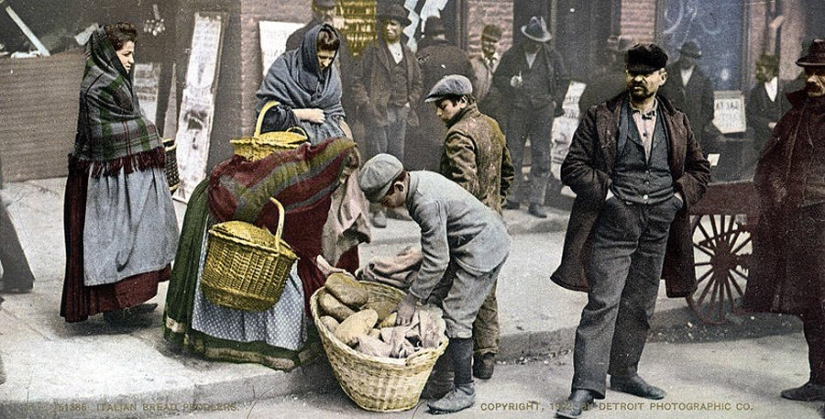
Peddlers from an Italian shop selling bread.
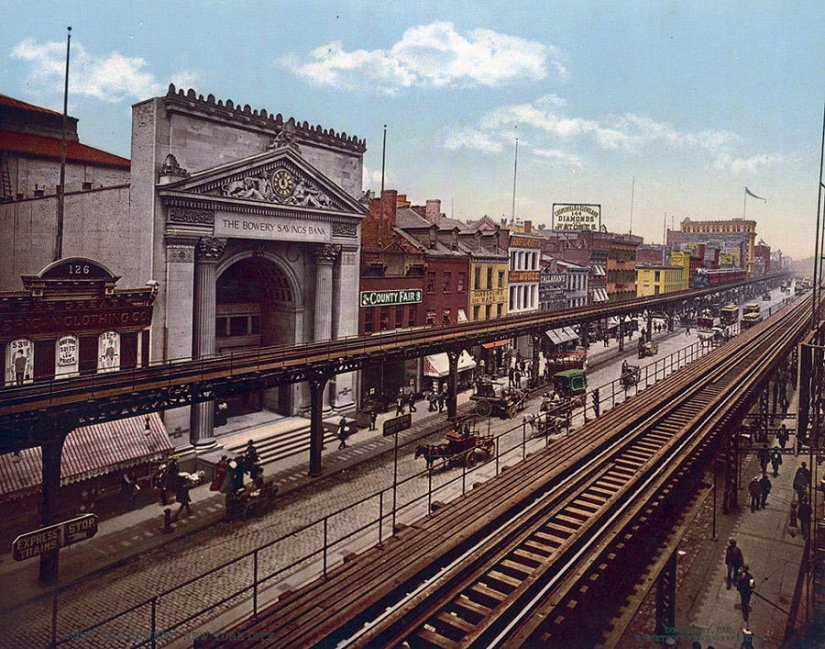
A branch of the Third Avenue EL elevated railway on the Bowery (1878-1955). On the left is the building of the Bowery Savings Bank (1895). This is the place today.
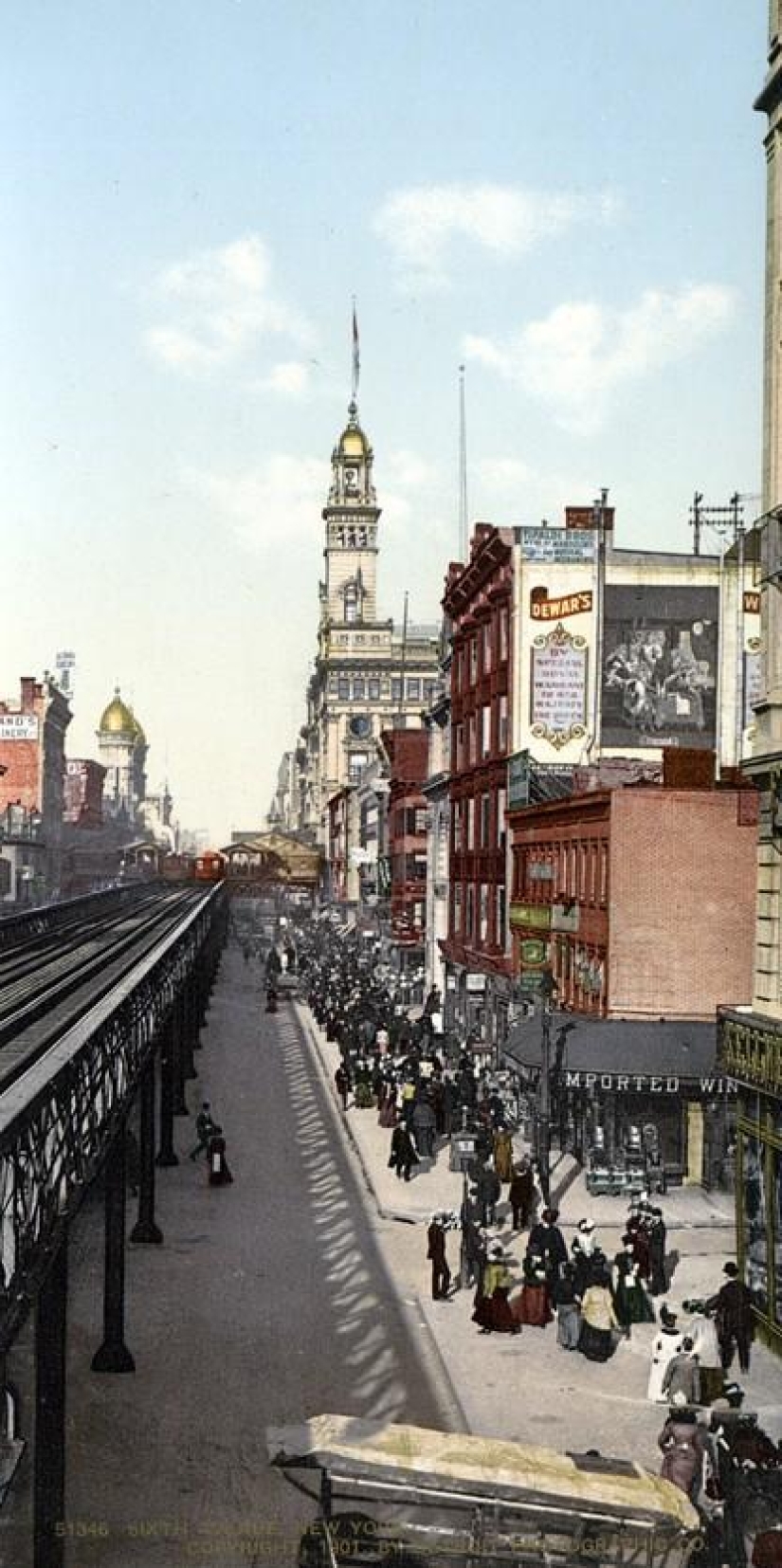
The intersection of Sixth Avenue and 14th Street. This is the place today.
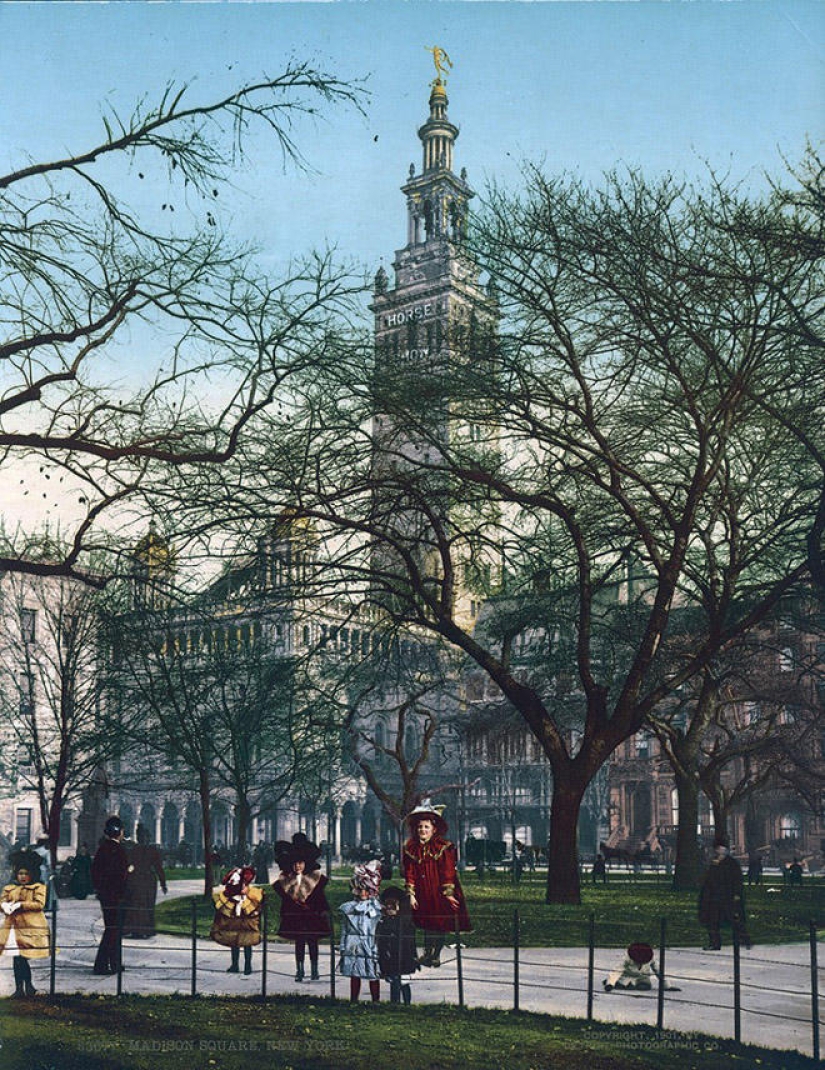
Madison Square and the Madison Square Garden building (1890-1925). In its place now stands the New York Life Building (1928). This is the place today.
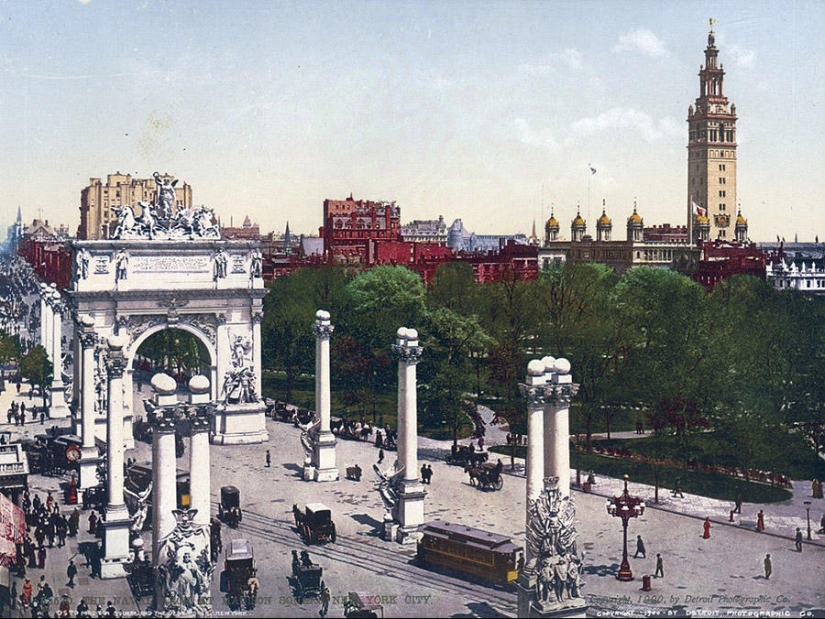
Dewey's Arc de Triomphe in Madison Square (1899-1900). It was built as a temporary structure for a parade in honor of the victory in the Battle of Cavite (wiki). This is the place today.
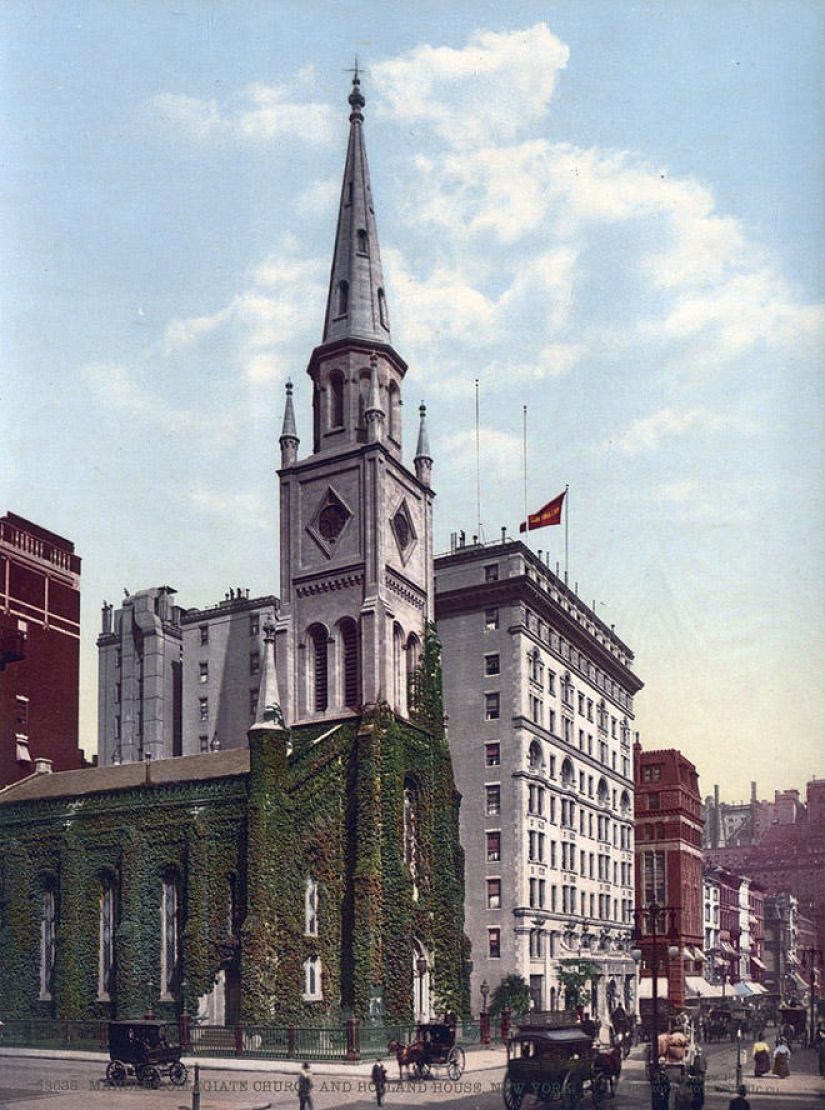
Protestant Marble Collegiate Church on the corner of Fifth Avenue and 29th Street. This is the place today.
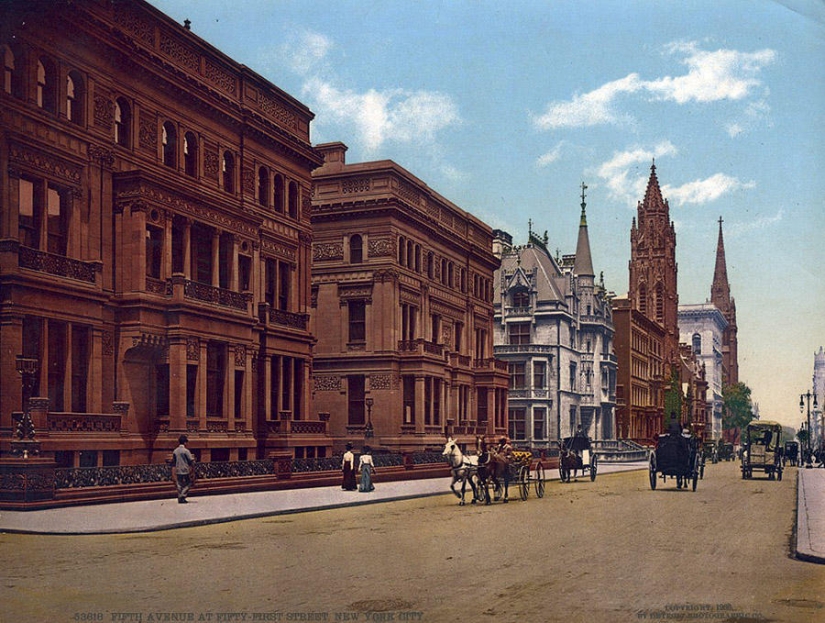
The intersection of Fifth Avenue and 51st Street. The brown building in the foreground is the huge mansion of William Henry Vanderbilt, which occupied an entire block. Built in 1882, demolished in 1927. Behind him stands the Petit Chateau (1882-1926), a mansion built for his son by William Kissam Vanderbilt. This is the place today.
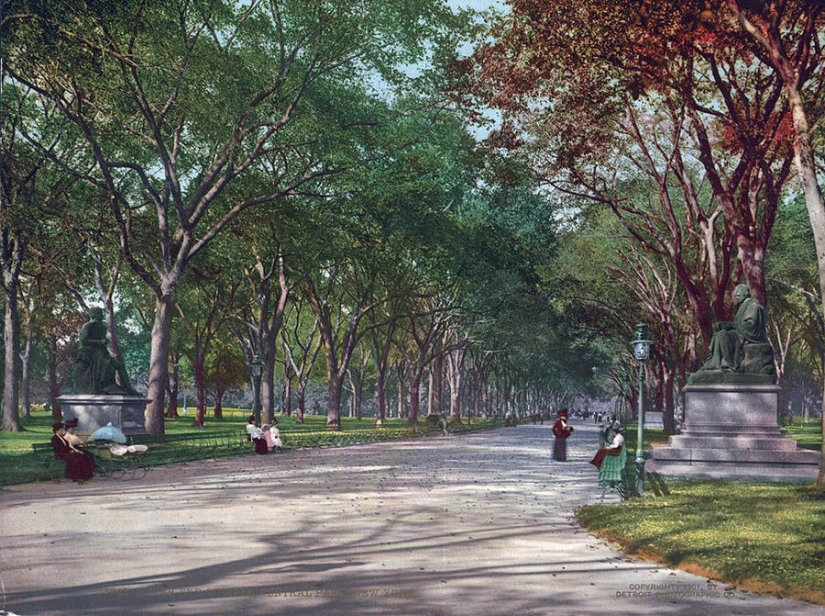
Alley "The Mall" in Central Park. This is the place today.
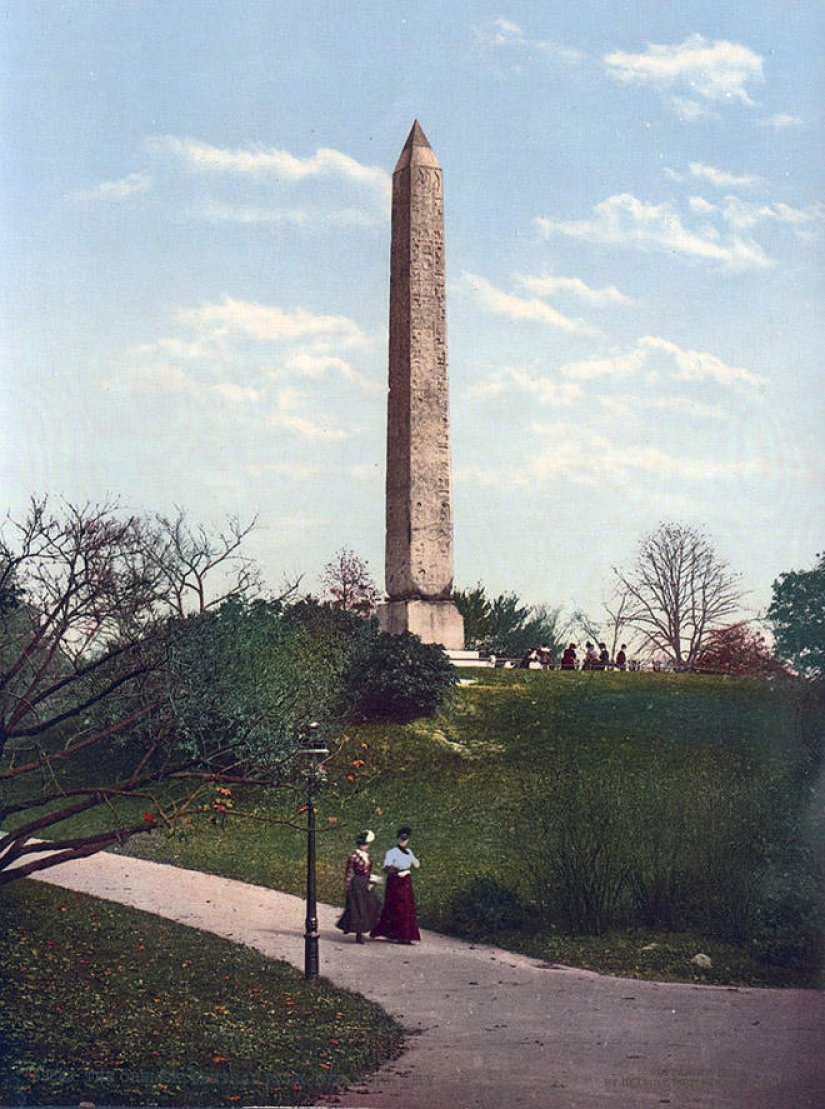
The obelisk "Cleopatra's Needle" in Central Park. This is the oldest (1450 BC) man-made structure on the territory of New York. It was brought from Egypt in 1880. This is the place today.
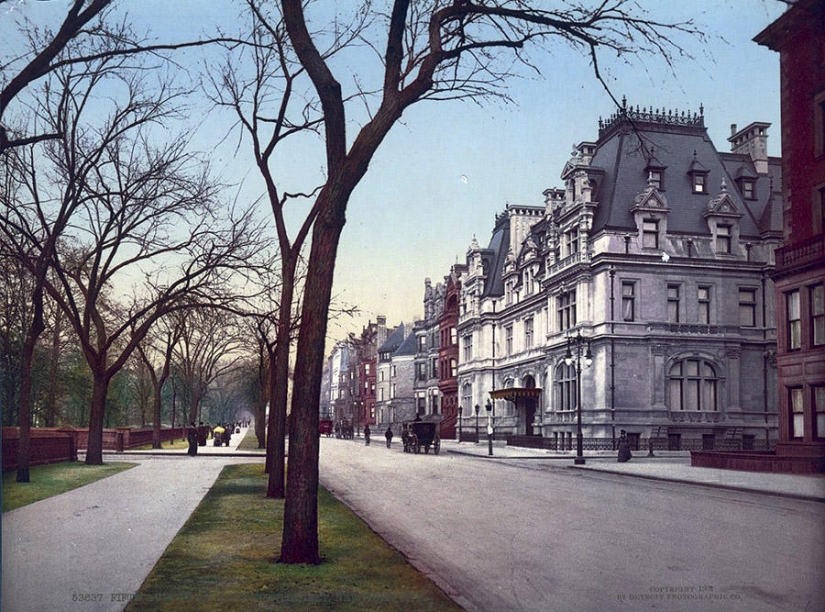
The intersection of Fifth Avenue and 65th Street. Central Park on the left. Gray House - "Mrs. Astor's mansion" (1893-1926). Carolyn Astor was a socialite and the wife of William Astor, a major real estate owner and son of John Jacob Astor, who was one of the richest people of that time. This is the place today.
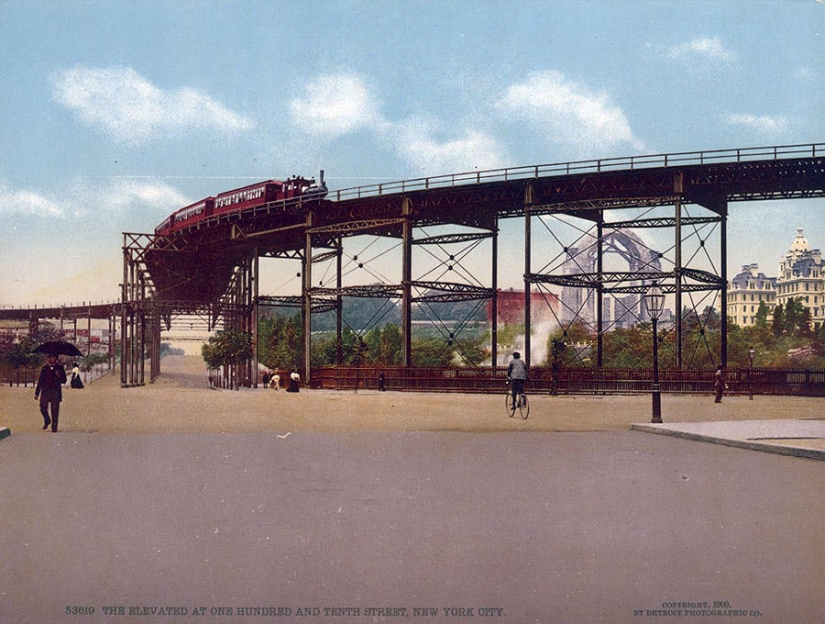
The suicide turn. The subway overpass near 110th Street. In the background, the Cathedral of St. John the Theologian is visible under construction. This is the place today.
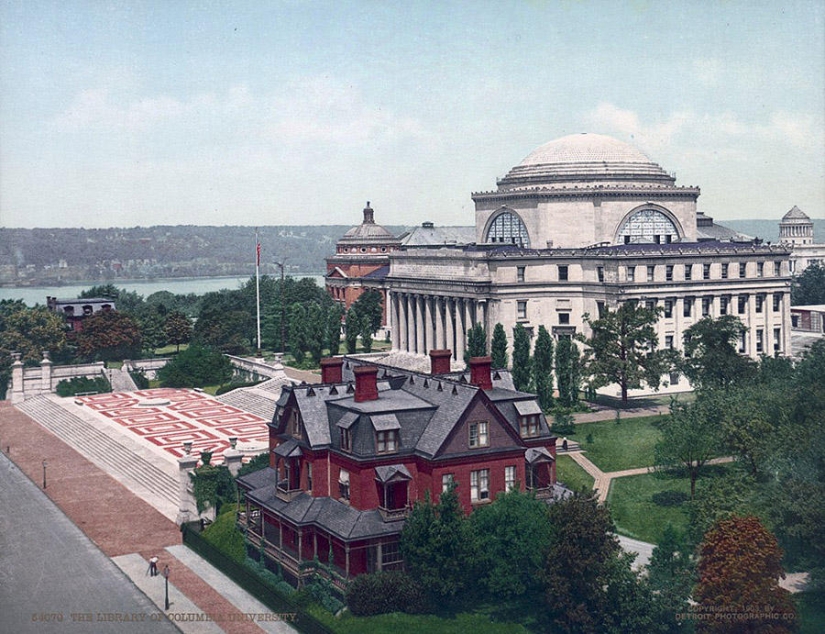
Columbia University Library (1895). In the foreground, Macy Villa (1885) is a building for wealthy patients of the Bloomingdale Psychiatric Hospital, which was located on this territory. In 1892, the land was sold to Columbia University, and all buildings except Macy Villa were demolished.
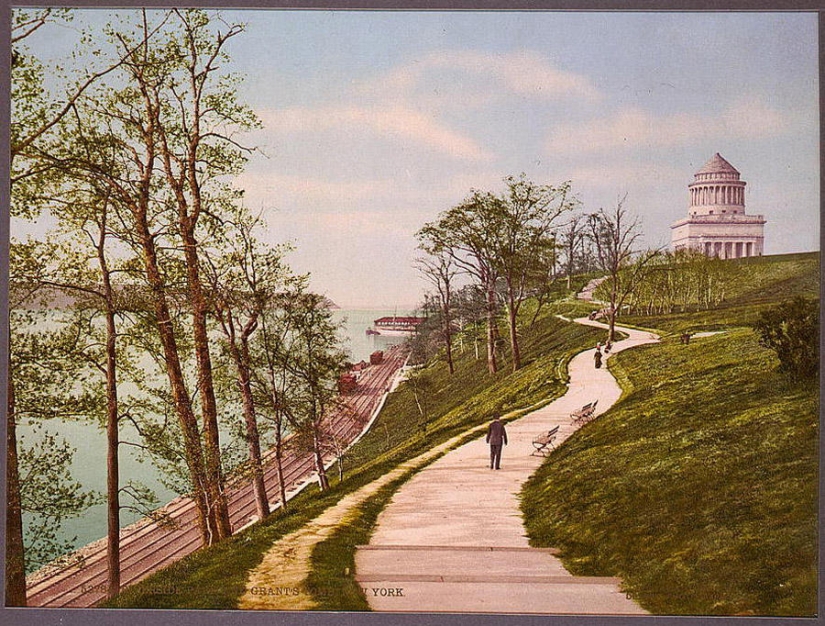
West Side. Hudson Coast. This is the place today.
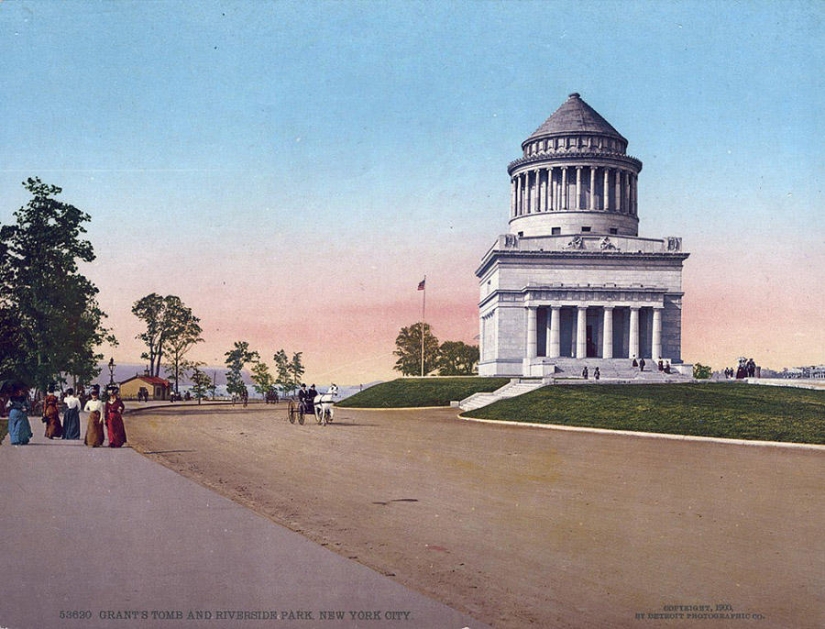
The Grant Mausoleum (1897) is the largest mausoleum in the United States. This is the place today.
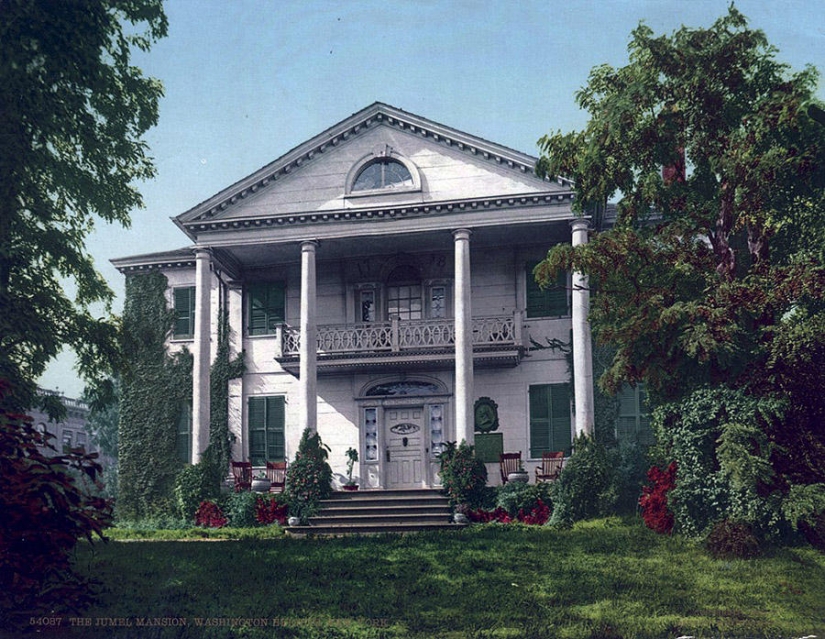
The oldest building in Manhattan is the Muncion Morris-Jumel. This is the place today.
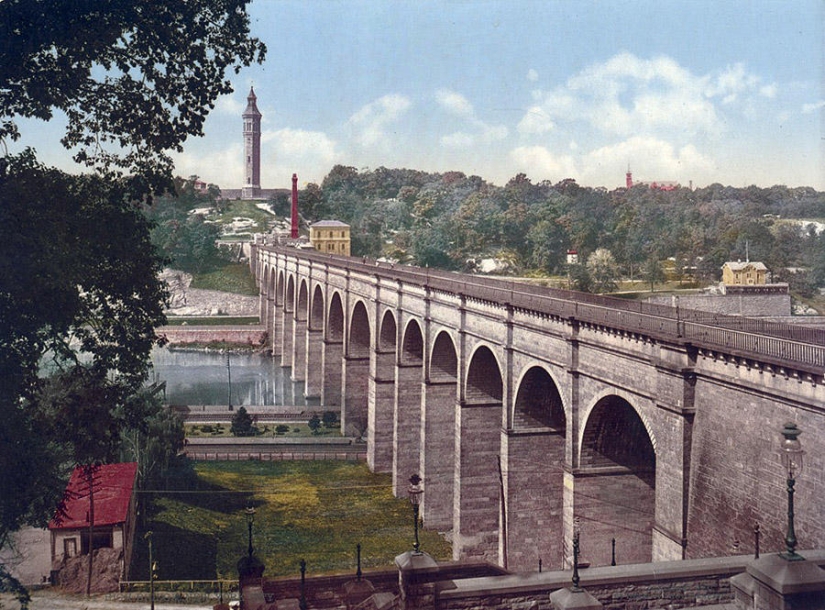
High Bridge (1848). The oldest bridge in New York. It was built as an aqueduct of the Croton water supply system. This is the place today.
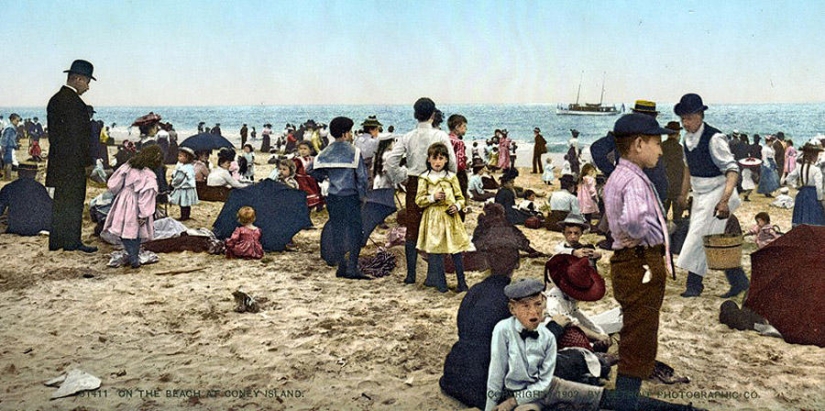
On the beach of Coney Island.
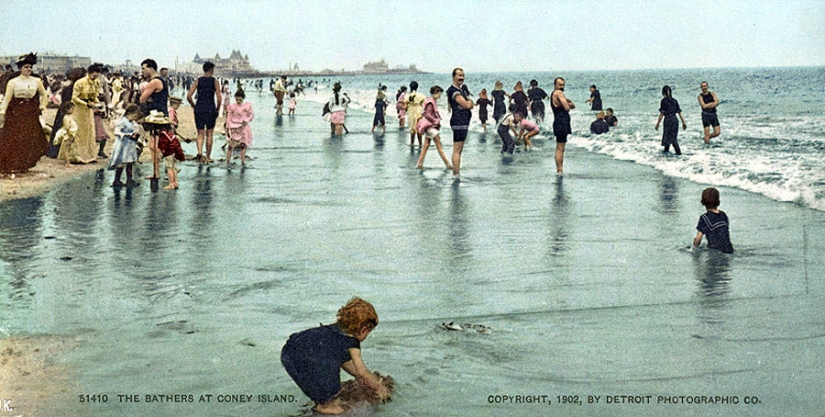
In the distance, you can see huge hotels standing on Brighton Beach and Manhattan Beach. This is the place today.
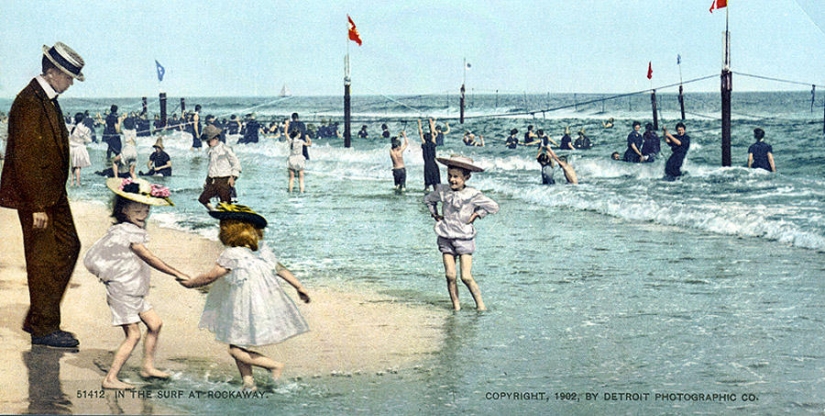
On Rockaway Beach. Most of the swimmers just stand in the water holding on to the stretched ropes. This is the place today.
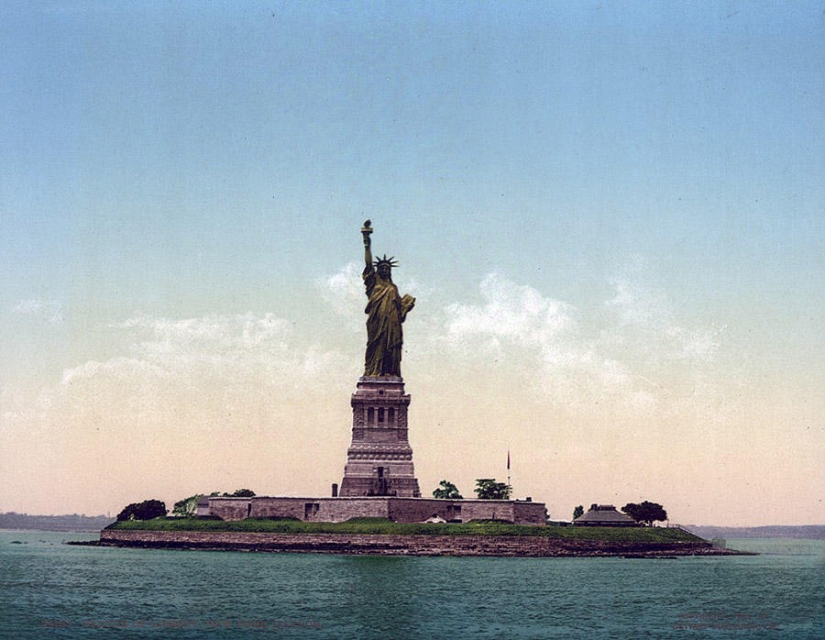
Statue of Liberty (1886) and Liberty Island. This is the place today.
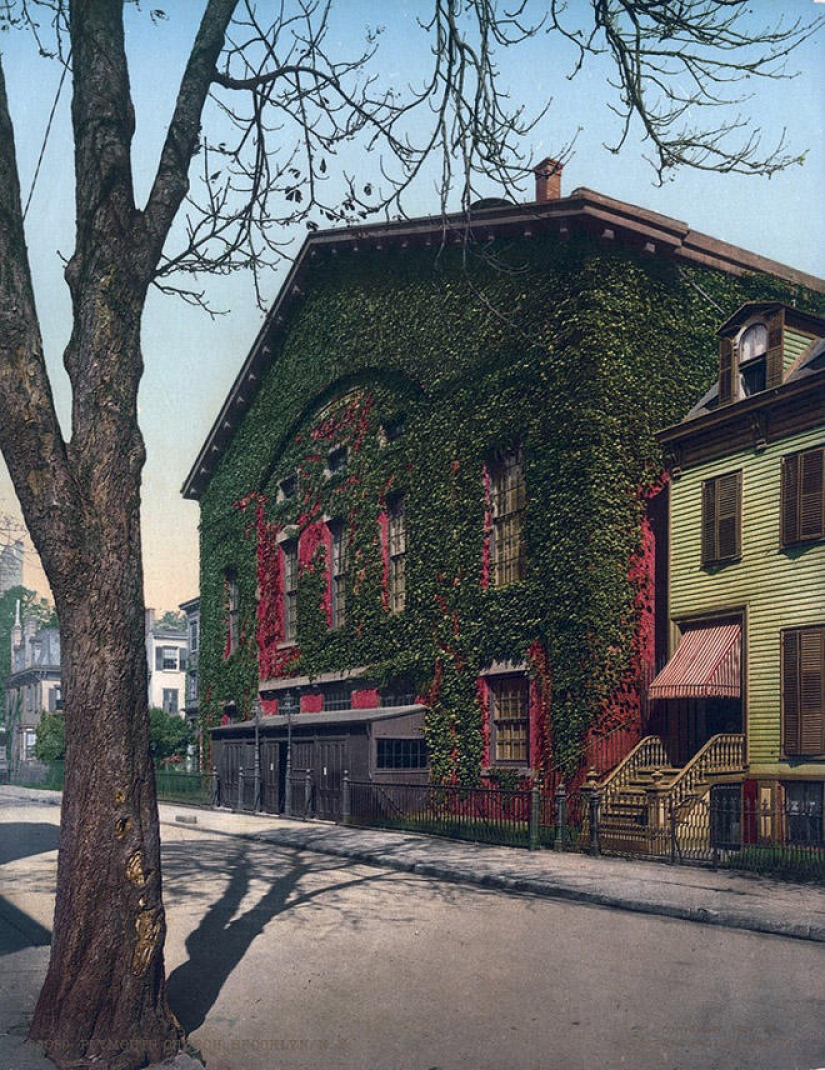
Plymouth Church in Brooklyn Heights (1850). This is the place today.
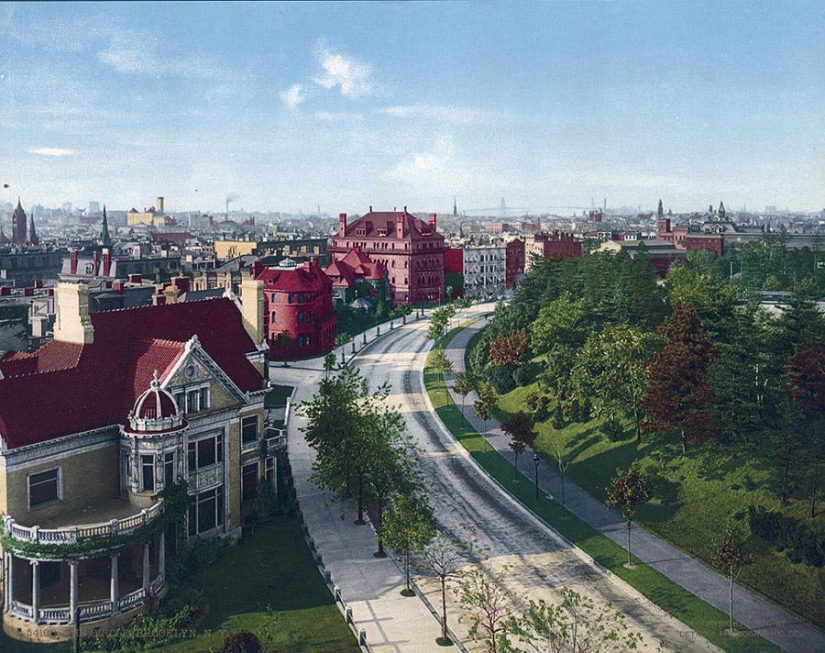
The Circle. Since 1926, it has been called the Grand Army Plaza. This is the place today. The big red building in the center is the Montauk Club (1889) and the townhouses to the right of it are still standing.
Recent articles

It's high time to admit that this whole hipster idea has gone too far. The concept has become so popular that even restaurants have ...

There is a perception that people only use 10% of their brain potential. But the heroes of our review, apparently, found a way to ...

New Year's is a time to surprise and delight loved ones not only with gifts but also with a unique presentation of the holiday ...